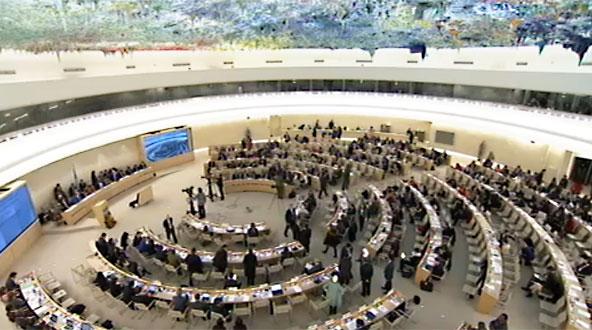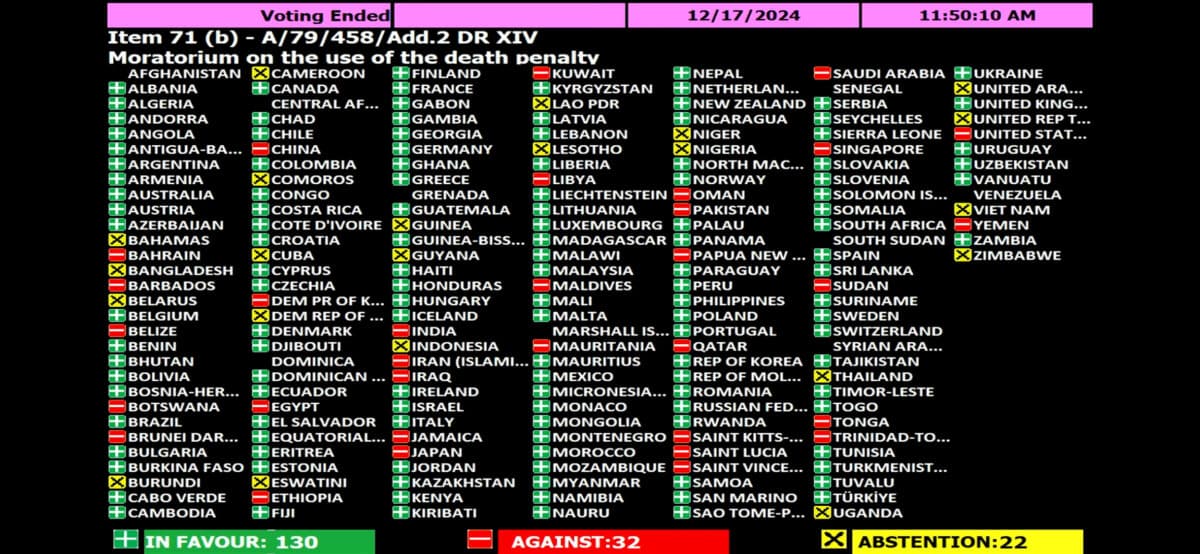
Death penalty: UN General Assembly human rights committee renews call for a moratorium on executions
Amnesty International welcomes the adoption of the draft resolution, which once again sets the death penalty clearly within the human rights framework. Among other important provisions, the resolution calls on states that still retain the death penalty to ensure the protection and promotion of human rights of those facing the death penalty. The resolution also reiterates its call on states to reduce the number of offences for which the death penalty may be imposed, and requests states to make publicly available information on any scheduled executions, and to ensure that those facing the death penalty can exercise their right to apply for pardon or commutation of their death sentence by ensuring that clemency procedures are fair and transparent.
Our organization, however, regrets that a hostile amendment proposed by Singapore and other sponsors relating to state sovereignty was adopted. It is further disappointing that Singapore and the other proponents of the amendment continued to oppose the resolution even after the amendment they put forward was approved. However, this amendment in no way undermines the positive language contained in the draft resolution, and the need for all states to heed the calls it makes.
Amnesty International commends the work done by a large group of cosponsors in support of this resolution, and in particular the states that lead on the negotiations, Argentina and Mongolia. In addition, we celebrate the fact that several countries positively changed their position compared to December 2014, when the previous resolution on the moratorium on the use of the death penalty was adopted. New votes in favour came from Gambia, Guinea, Malawi, Namibia, Sri Lanka and Swaziland. As a further positive sign, Zimbabwe moved from opposition to abstention. Regrettably, Chad, Niger, Philippines and Seychelles went from a vote in favour to abstention; while Burundi and Maldives moved from vote in favour and abstention, respectively, to vote against.
Although not legally binding, UN General Assembly resolutions carry considerable moral and political weight. Amnesty International urges all UN Member States to support the resolution when it comes for final adoption in December. Those countries still retaining the death penalty should immediately establish a moratorium on executions as a first step towards full abolition.
Background
Since 2007 the UN General Assembly has adopted five resolutions calling for a worldwide moratorium on the death penalty, with support increasing each time.
When the UN was founded in 1945 only eight of the then 51 UN Member States had abolished the death penalty. Today, 103 Member States have abolished the death penalty for all crimes, and in total 141 out of the 193 have abolished the death penalty in law or practice. In 2015, 169 (88%) of the 193 UN Member States were executions-free.
The adoption of these ground-breaking resolutions on a moratorium on the use of the death penalty since 2007 has generated momentum to renew the commitment to the abolition of the death penalty.
Amnesty International opposes the death penalty in all cases without exception, regardless of the nature or circumstances of the crime; guilt, innocence or other characteristics of the individual; or the method used by the state to carry out the execution.
Categories
Moratorium






